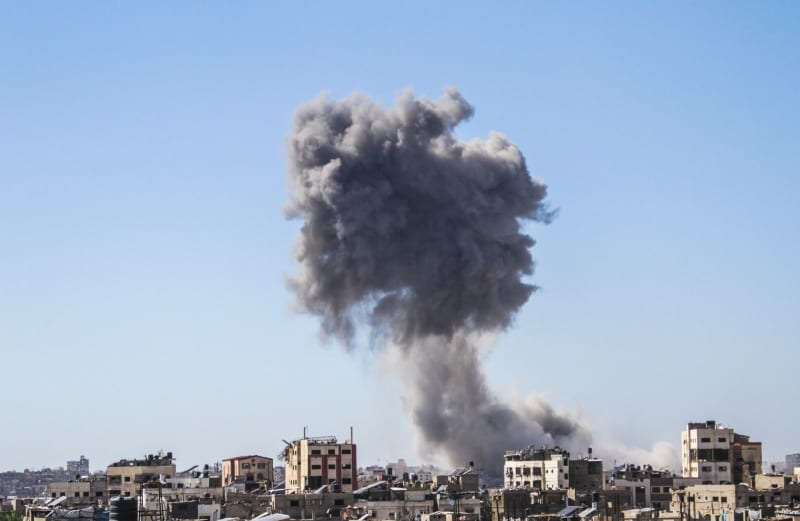On Friday, a series of Israeli airstrikes across Gaza resulted in the deaths of dozens of individuals, intensifying the already dire humanitarian crisis in the region. According to the health authority in Gaza, which is controlled by Hamas, one particularly devastating strike in Khan Younis claimed at least 38 lives, predominantly affecting women and children. This toll has been corroborated by various reports, although figures remain difficult to verify independently. Following the strike in Khan Younis, further attacks in Beit Lahia were reported, with Palestinian news agency WAFA indicating at least 20 fatalities and a significant number of injuries. As the violence escalates, the Israel Defense Forces (IDF) have announced they are looking into these alleged casualties amid ongoing operations aimed at combating what they define as terrorist threats in the area.
Amid the chaos, the IDF also reported the deaths of three Israeli soldiers in Jabalia, where their forces have been actively engaged in military operations. These soldiers, ages 21 and 22, were killed when a bomb exploded on their tank, causing several injuries among their peers who were subsequently hospitalized. The IDF asserted that they had successfully neutralized numerous threats and dismantled terrorist infrastructure during their operations, framing these military actions as necessary measures to ensure the safety of Israeli civilians. However, this ongoing military engagement has led to a significant displacement of the local population, with indications that up to 45,000 individuals have fled the region to escape the escalating violence.
Conditions for civilians in northern Gaza have reached a catastrophic level, according to witnesses and humanitarian officials. The toll of airstrikes and ground operations has left a profound impact on the already struggling population, heightening food insecurity and exacerbating the humanitarian crisis. Reports from earlier in the week suggested extraordinarily high casualty counts, with Palestinian authorities estimating upwards of 200 victims after sustained Israeli bombardments. The IDF has refuted these casualty figures, stating that such estimates do not align with their operational intelligence, illustrating the difficulty in obtaining accurate information amidst the chaos of war.
In response to the grave situation unfolding in the region, the UN High Commissioner for Human Rights, Volker Türk, has publicly called for heightened international action to protect civilians from what he described as potential humanitarian atrocities, including instances that could amount to crimes against humanity. He characterized the human rights violations as becoming increasingly severe due to ongoing military efforts. Moreover, Türk condemned both the Israeli military operations and the tactics employed by Palestinian armed groups, urging state leaders around the world to prioritize civilian safety and human rights in their policy decisions. His appeal underscores a growing sentiment that the protection of vulnerable populations should not be overshadowed by military objectives.
Compounding these challenges, reports emerged detailing a contentious incident wherein Israeli troops reportedly stormed the Kamal Adwan Hospital in Beit Lahia. According to the health authority in Gaza, soldiers not only entered the hospital but also made arrests and fired shots, damaging the facility and restricting access to essential medical supplies. The IDF confirmed they had conducted an operation guided by intelligence regarding the presence of militants, but they asserted the hospital continued to operate in an emergency capacity. Ongoing reports indicate that while medical supplies have been delivered, the inability to independently verify the claims further complicates the humanitarian narrative amidst the conflict.
The latest developments in Gaza reflect a complex interplay of military action, civilian casualties, and international diplomatic concerns. As the situation escalates, it remains clear that the plight of ordinary citizens is overshadowed by the broader conflict, leading to an urgent need for global attention and intervention. The humanitarian ramifications of these continued hostilities illustrate the potential for long-term consequences on the population, underscoring the immediate need for a resolution that prioritizes human rights and civilian safety in this deeply affected region. With continued military operations, escalating violence, and growing international concern, the search for a peaceful resolution amidst widespread suffering becomes ever more critical.

